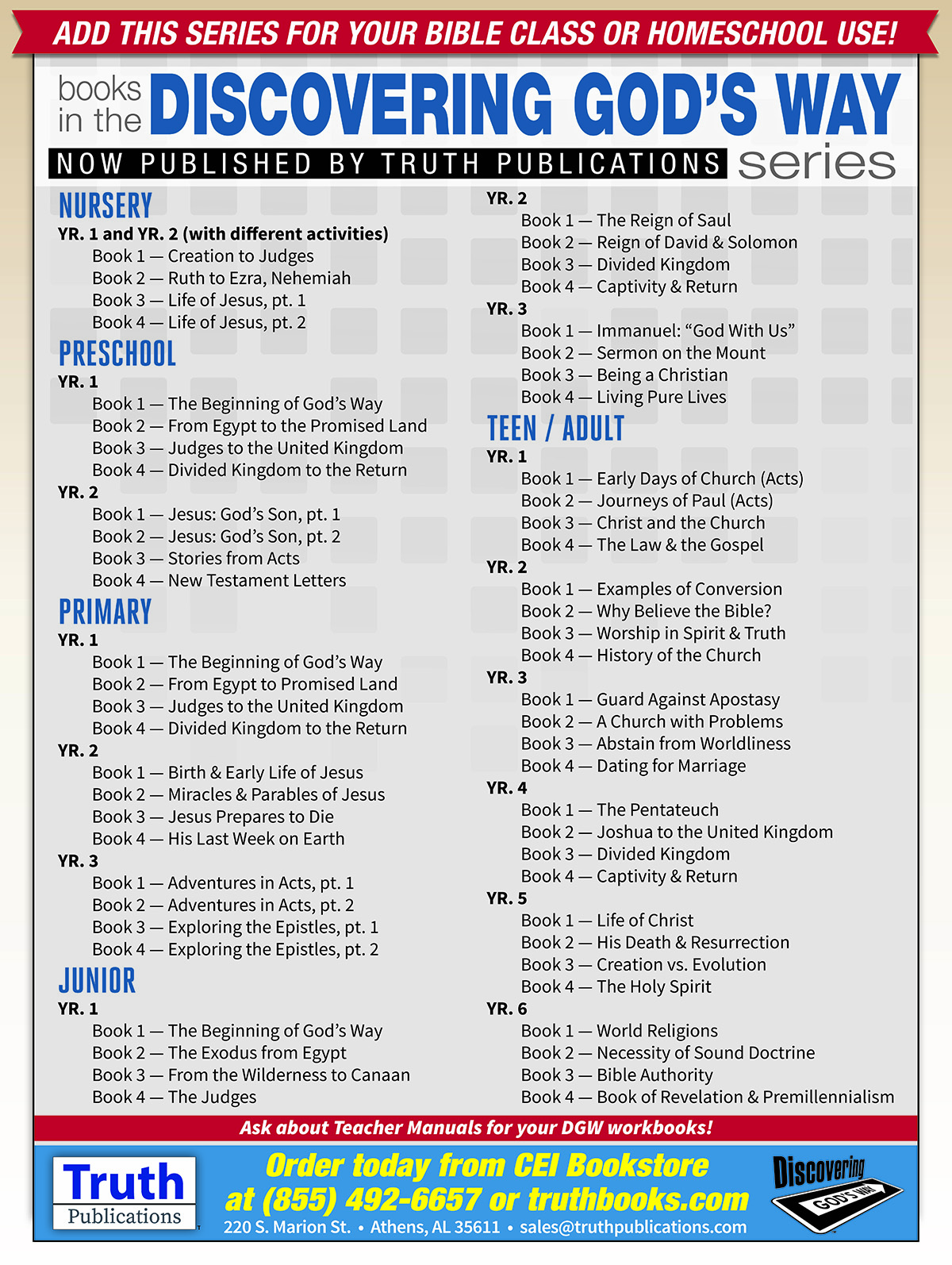

by Deborah Towles
Synopsis: Dealing with trash is usually a family affair and can provide opportunities to teach spiritual lessons regarding what is worth keeping and what should be thrown away.
Trash is an unpleasant but unavoidable part of life. We consume; we discard. We gather; we cast away (Eccles. 3:6). If not carefully managed, trash overwhelms our homes, communities and our nation. Our trash tells a story—revealing habits, vices, spending patterns, food preferences, family composition, medical conditions and more. What we save or discard is an indication of our values. Dealing with trash is usually a family affair and can provide opportunities to teach spiritual lessons regarding what is worth keeping and what should be thrown away.
Many things belong in the trash: the worn out, the broken, the unserviceable, the spoiled, the soiled, the grimy, the germy, and the hazardous. The longer the trash sits, the more rancid and contaminated it becomes. Occasionally, we may find that a possession we considered valuable is actually worthless. It can be cast away without regret. What we once deemed of great worth may be discarded when we no longer consider it necessary or important, though its intrinsic value is undiminished. Yet, it is shameful and wasteful to discard something of true usefulness and value.
Have you ever considered that we need a spiritual trash can to use when discarding the refuse from our hearts? Until we cast away our worthless, vile attitudes and values, a toxic environment will overwhelm us. The things we choose to throw away tell a lot about us. Do we cast away a deceitful and devious mouth (Prov. 4:24), filthiness and all that remains of wickedness (Jas. 1:21), malice, guile, hypocrisy, envy and slander (1 Pet. 2:1), the deeds of darkness (Rom. 13:12), our old manner of life including falsehood, bitterness, wrath, anger, and clamor (Eph. 4:22, 25, 31), any idols we still hold dear (Josh. 24:14) and the weights and sins that so easily beset us (Heb. 12:1)? If so, our full trash can is a testimony to God's ability to clean the pride and selfishness from our hearts and make us holy. Why would we ever want to reach back into our discarded filth to retrieve any vile thing?
What is revealed about our values by looking through our personal, spiritual trash can? Do we cling to invaluable spiritual treasures and discard the love of that which is worthless (Matt. 6:19-21; 1 John 2:15)? Do we treasure God's word and never cast it from ourselves (Ps. 119:11; 18:22)? Are we like Paul, who considered knowing Christ the greatest treasure and counted all else as rubbish (Phil. 3:8)?
On the other hand, is our trash littered with good intentions, true commitment to God, love for His word, and the wounded, broken hearts of others, our Savior and our God? Are we like profane Esau, who cast away as worthless his great inheritance to satisfy his immediate fleshly desires (Heb. 12:16)? People of Ezekiel's day could not distinguish between the holy and the unclean (Ezek. 22:26). Because of their great wickedness, God cast them away as dross is cast into the furnace to be consumed (Ezek. 22:18-22; Ps. 119:119)! Let this not be said of us! Instead, may we be like Paul and the apostles who, though the world considered them as the offscouring of the earth belonging to the rubbish heap (1 Cor. 4:13), were of great value to God (2 Tim. 4:7-8)!
In most families, children have a role in dealing with trash. Our children will see whether we continually strive to rid our hearts of toxic sinful attitudes. As we practice, teach and require sound habits of thinking and behavior of our children, and ourselves, they learn to distinguish the valuable from the worthless. Perhaps the next time a child chooses kindness, patience or honesty, you may want to write the word "selfishness," "impatience," or "deceitfulness" on a piece of paper and then have your child throw it in the trash. Recording worthy attitudes and actions on a child's personal "heart chart" can encourage good choices. Using the trash can as a positive object lesson can help them distinguish what is worth treasuring in their hearts—and what should be discarded into the rubbish heap. May God bless us as we fill our trash cans with all that truly belongs there!
Author Bio: Deborah is the wife of Gale Towles who preaches for the State Line church of Christ in Charlotte, NC. Gale and Deborah have been married 42 years. They have four children and nineteen grandchildren. She can be reached at dtowles419@gmail.com.
